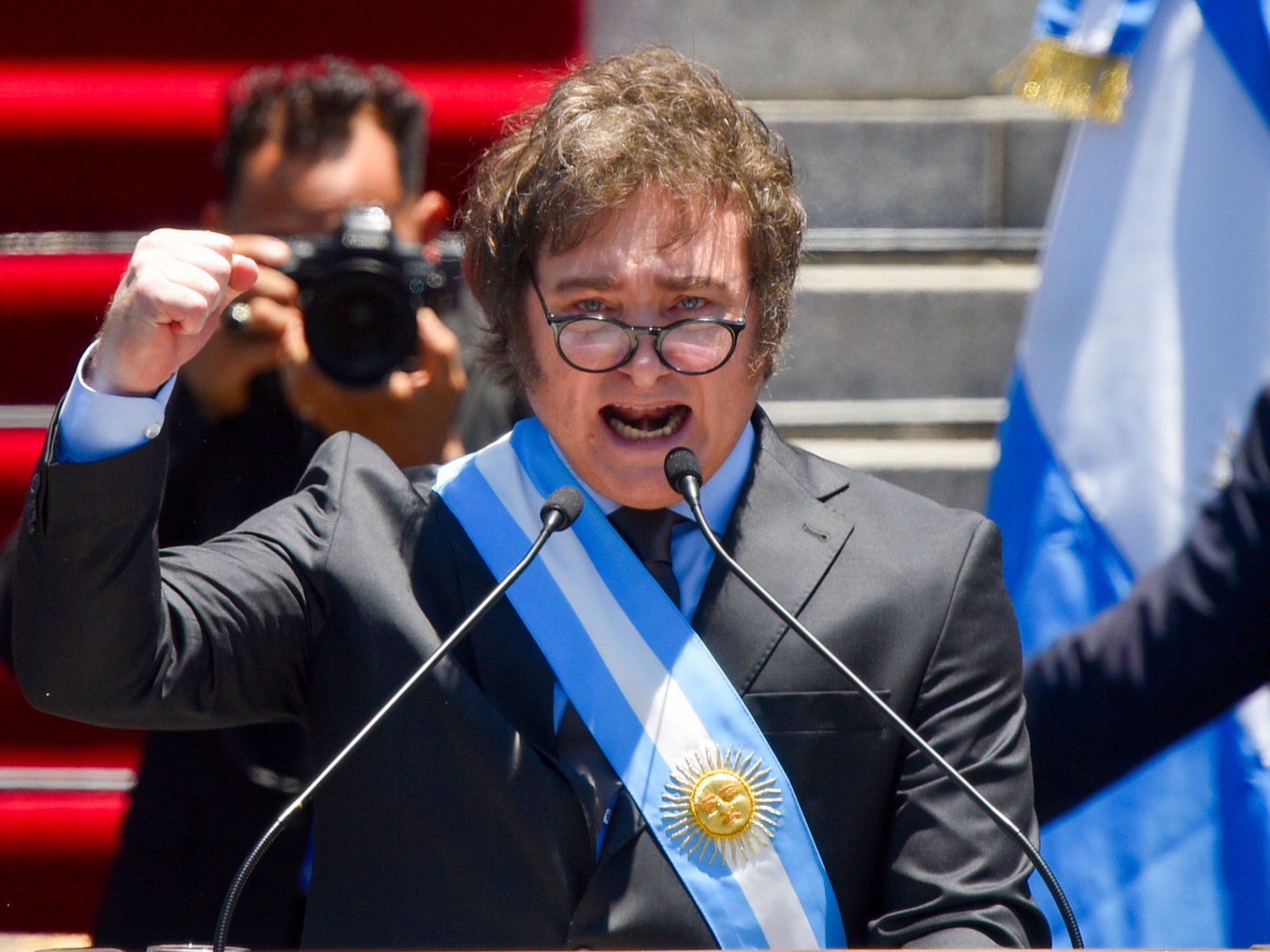
Year of the underdog: How ‘outsiders’ upended Latin America’s elections
Al Jazeera
From Argentina to Guatemala to Ecuador, voters rejected establishment candidates in this year’s presidential races.
Buenos Aires, Argentina – Poverty through the roof. Out-of-control inflation. Overwhelming debt. Javier Milei painted the grimmest of pictures when he delivered his inaugural address as president of Argentina earlier this month.
“There is no money,” he said in a grave voice. “There is no alternative to tightening our belt. There is no alternative to a shock.”
It was not the sort of message you would expect to elicit cheers from a society battered by economic recession. But the roar from the crowd demonstrated the extent to which Milei – a relative newcomer to the world of politics – had succeeded in tapping into voters’ discontent with the status quo.
Milei, a 53-year-old libertarian economist known for his shaggy hair and cloned dogs, was part of a wave of political outsiders who surged into leadership positions in Latin America this year.
Countries across the region saw dark-horse candidates sweep into the presidency in 2023, delivering a rebuke to the political establishment.











